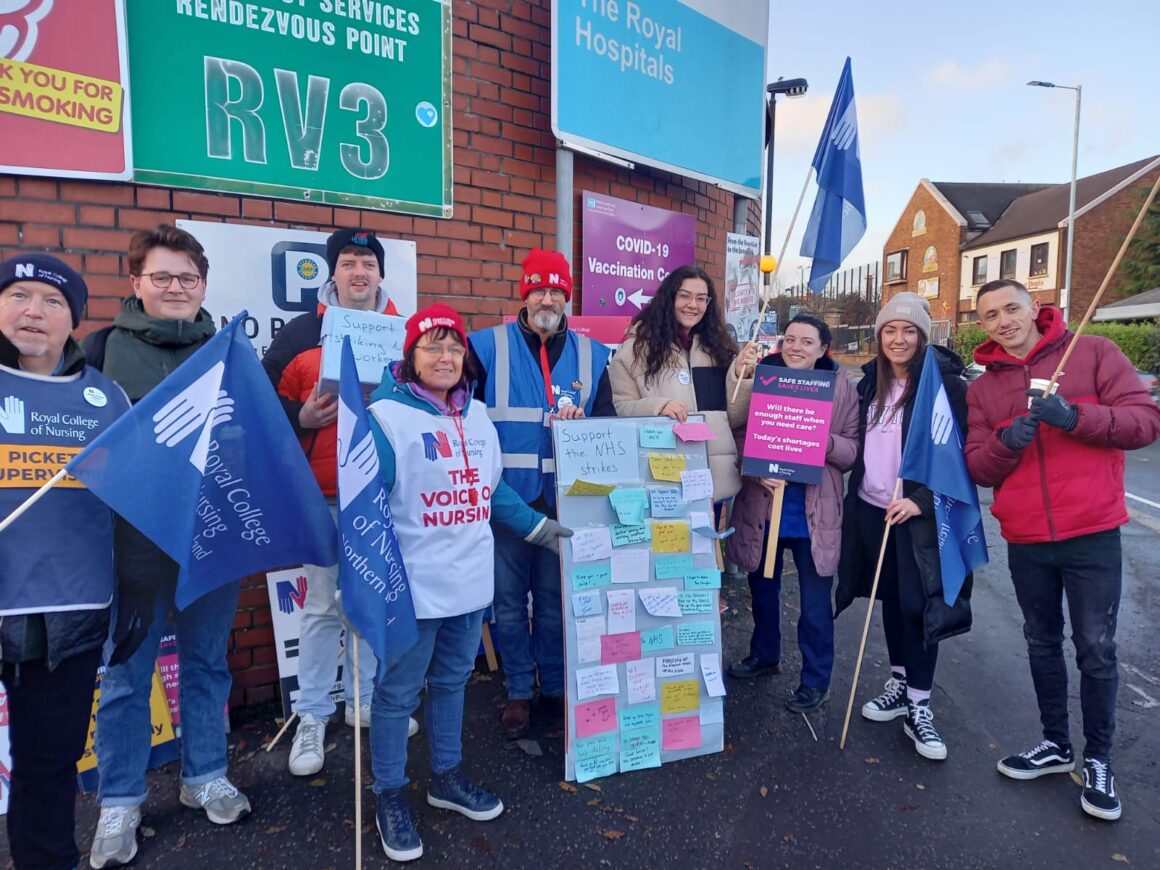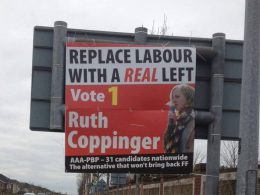By Conor Tormey
With public sector pay negotiations happening in the coming months, workers are looking towards what should be fought for and what constitutes a real pay increase. The Irish Congress of Trade Union (ICTU) leadership, a leadership steeped in the methods of social partnership, has unfortunately shown time after time that it is unwilling to entertain a serious struggle for real pay increases for workers.
The public sector deal implemented last year was a meagre 3.5% for 2023, with inflation sitting at 8% this meant an effective 4.5% pay cut for Irish workers. At the same time, a Eurostat report showed that the majority of price increases in Ireland have been due to profiteering by big businesses. Workers need a leadership that will do something about this, using all of the resources of the trade union movement to fight for inflation-busting pay rises – at a minimum.
With this in mind, Unite the Union’s regional secretary for Ireland and Socialist Party member Susan Fitzgerald’s recent interview on RTE’s Today with Claire Byrne on 10 May (available to listen back on the RTE player) was a breath of fresh air. As she said in the interview, “if workers are prepared to fight, Unite is prepared to back them”, which is exactly the approach we need from trade union leaders, but one that is all too rare in Ireland.
When you fight you can win
As Susan said, workers in the South only need to look towards the North to see what is possible when workers take robust industrial action. Unite members in MM Bangor recently won a 13% pay increase after a militant six-day strike, and in March Unite members in Hovis won a 13.5% pay increase after all-out strikes forced the employer to give an improved offer. Unite has won 80% of all disputes since August 2021, putting £200 million back into the pockets of its members.
A recent Fórsa survey found that over 99% of the 20,000 members that responded said that it was “very important” that wage increases match inflation in pay negotiations. The only way that this will happen is with a proper strategy utilising the collective power of workers when organised.
Union militancy needed
On top of pay not keeping up with inflation, Irish workers also have to deal with numerous social crises, including the housing crisis and linked to that the understaffing of key public services like healthcare and education, especially in Dublin where house prices and rents are extortionate. The ICTU, just as with pay increases, unfortunately refuses to take up these issues in any serious way. The ICTU-led ‘Raise the Roof’ housing campaign has said it won’t hold another protest on the housing crisis until after the budget in October to see if the government’s housing plan delivers, of which there is absolutely no prospect!
The trade union rank and file must learn lessons from the recent strike waves of Britain and the North. If we unite and fight we can win. It’s not easy, but if we don’t fight we’ve already lost. Pressure must be put on the union leaderships to either act on pay and other issues facing their members and the working class more broadly, including waging a struggle to smash the pernicious forces of the far right, or get out of the way.












